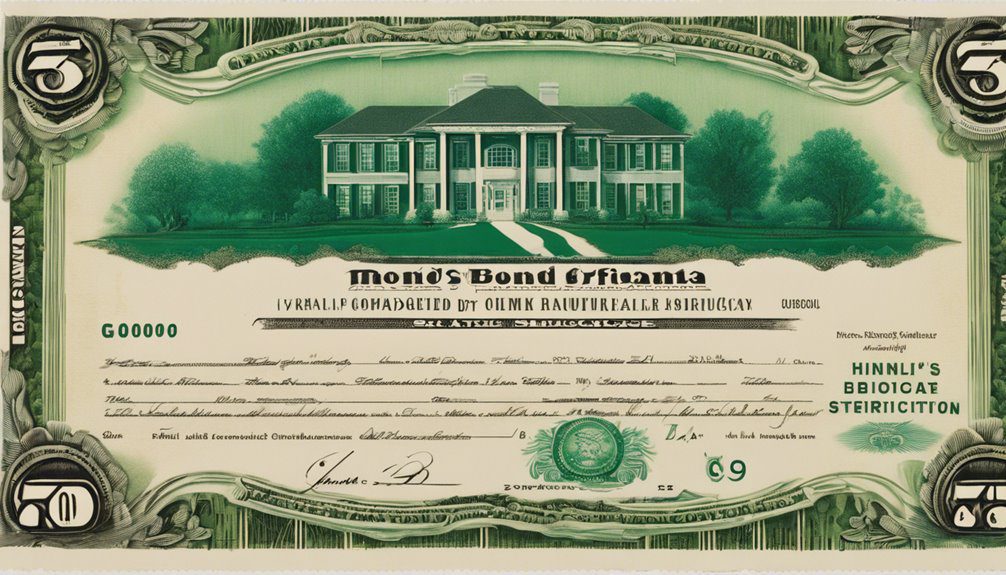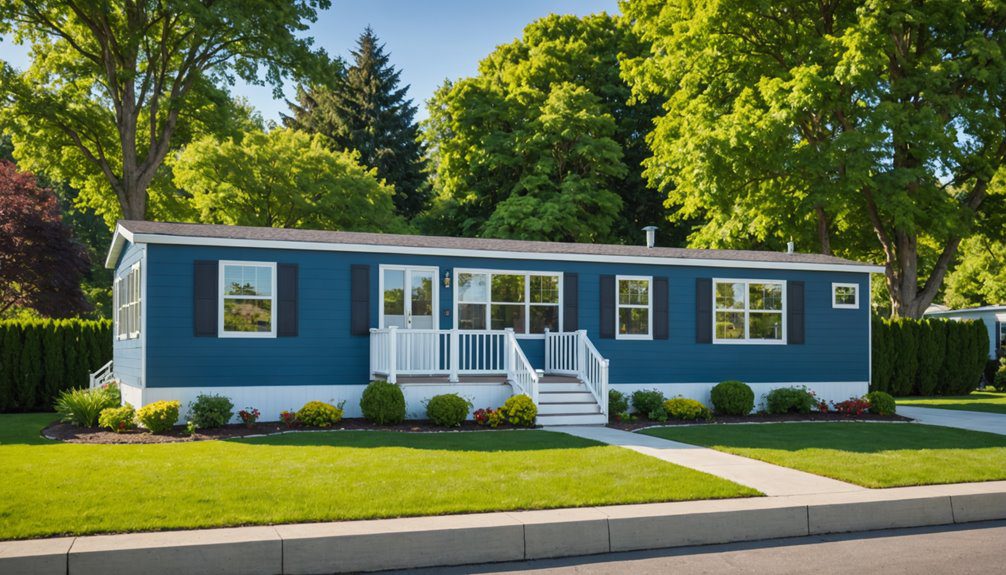When you're navigating the manufactured home industry in South Carolina, understanding the $75,000 bond requirement isn't just a formality; it's vital for your credibility and compliance. This bond not only safeguards consumers but also positions you favorably among competitors. You might wonder how this financial guarantee can enhance your business practices and attract more customers. As you explore the nuances of this bond, the implications for your operations and reputation will become clearer, revealing challenges and opportunities you may not have considered. What's the next step in leveraging this bond effectively?
Understanding the ,000 Bond

A $75,000 bond is essential for manufactured home manufacturers, ensuring they operate within legal and ethical guidelines. This bond acts as a safety net, protecting consumers and the state from potential financial loss due to unethical practices.
When you obtain this bond, you're demonstrating your commitment to adhering to industry standards and regulations.
Understanding the bond's requirements is crucial. It typically involves a thorough application process where you'll need to provide financial information and potentially undergo a background check. This helps ensure that only reputable manufacturers are licensed to operate.
You'll also pay a premium based on factors like your credit score and business history.
Once secured, the bond doesn't just protect consumers; it can also enhance your credibility in the market. Clients are more likely to trust manufacturers who are bonded, knowing there's a financial guarantee behind your promises.
If a claim arises against you, the bond can cover damages up to the specified amount, safeguarding both you and your clients. Additionally, compliance with consumer protection laws is vital to avoid claims and maintain your reputation in the industry.
Purpose of the Bond
The purpose of the manufactured home manufacturer bond is to ensure that you adhere to industry standards and protect consumers from potential malpractices. This bond acts as a safety net, holding you accountable for your actions in the manufacturing process.
When you obtain this bond, you're essentially guaranteeing that you'll follow all relevant laws and regulations, providing peace of mind to your customers.
By securing this bond, you're demonstrating your commitment to ethical practices and quality assurance. If you fail to meet these obligations, the bond serves as a financial resource for consumers to seek restitution. This means that if a customer experiences damages due to your negligence or non-compliance, they can file a claim against the bond, enabling them to recover losses.
Moreover, having this bond can enhance your reputation in the industry. It shows that you prioritize consumer trust and are serious about maintaining high standards. This can lead to increased business opportunities and foster stronger relationships with clients.
Who Needs the Bond?

Manufacturers of manufactured homes are typically required to secure this bond to operate legally within their state. If you're involved in the production or assembly of manufactured homes, you'll need this bond to meet state regulations. This requirement applies to both new manufacturers entering the industry and established companies looking to continue their operations.
You'll find that the bond serves as a financial guarantee, ensuring compliance with laws and protecting consumers against potential financial losses. It's crucial for you to understand that this isn't just a formality; it's often a prerequisite for obtaining your business license. Without it, you may face delays or even denials in your applications.
In addition to manufacturers, anyone acting as a dealer or retailer of manufactured homes may also need to secure a bond. This includes those who sell or lease these homes to consumers. By obtaining this bond, you demonstrate your commitment to ethical practices and consumer protection.
Benefits for Manufacturers
Frequently, securing a manufactured home manufacturer bond can significantly enhance your business's credibility. When you have this bond in place, it signals to potential clients and partners that you're committed to ethical practices and regulatory compliance.
This trust can set you apart in a competitive market, helping you attract more customers.
Additionally, having a bond may open doors to new business opportunities. Many contractors, suppliers, or investors prefer working with bonded manufacturers because it reduces their risk.
This could lead to partnerships and contracts that mightn't have been available otherwise.
Moreover, a bond can provide financial protection for your business. If you face unexpected challenges, the bond can help cover certain costs, ensuring your operations remain stable.
This financial cushion can be vital for maintaining your company's reputation and continuing to serve your customers effectively. Furthermore, obtaining a bond demonstrates your commitment to compliance with state laws, which can enhance your standing in the industry.
Consumer Protection Aspects

How can a manufactured home manufacturer bond protect consumers? This bond serves as a safety net, ensuring that you're protected if a manufacturer fails to meet their obligations. If a manufacturer doesn't deliver on the terms of your contract—whether it's related to quality, delivery, or warranty—you can file a claim against the bond. This provides you with a financial avenue to recover damages.
The bond also acts as a deterrent against unethical practices. Knowing they're bonded, manufacturers are more likely to adhere to laws and regulations, as failure to do so can lead to claims against them. This means they're motivated to provide quality products and services, which ultimately benefits you.
Moreover, the bond enhances your confidence in the manufacturer. When you see that they've secured a bond, it signals to you that they're serious about their business and are committed to protecting consumer interests. This level of accountability is crucial in an industry where significant investments are made. Additionally, the bond ensures that manufacturers pay necessary taxes and fees accurately and timely, providing further financial protection for consumers.
In short, a manufactured home manufacturer bond offers you peace of mind, ensuring that your rights as a consumer are safeguarded.
Bond Application Process
The bond application process for manufactured home manufacturers is a crucial step that requires careful attention. To get started, you'll need to gather essential documents, such as your business license, financial statements, and any relevant certifications. These documents help demonstrate your credibility and financial stability to the surety company.
Next, you'll fill out a bond application form, which typically asks for information about your business, ownership, and financial history. Be prepared to provide details about your experience in the manufactured home industry, as this can influence your bond approval.
After submitting your application, the surety company will evaluate your qualifications. They may conduct a credit check and assess your overall risk profile. If you meet their criteria, you'll receive a quote for the bond premium, which is usually a percentage of the bond amount. It's important to note that certain states have specific requirements for bond amounts based on the level of risk associated with the industry.
Once you accept the terms, you'll pay the premium, and the surety will issue your bond.
Compliance and Regulations

Navigating compliance and regulations is essential for manufactured home manufacturers to ensure their operations align with industry standards and legal requirements. You'll need to stay informed about both federal and state regulations governing manufactured homes, including safety standards, building codes, and zoning laws. Understanding these regulations can help you avoid legal pitfalls and maintain your business's reputation.
You must also ensure that your manufacturing processes adhere to the standards set by the U.S. Department of Housing and Urban Development (HUD) and any applicable state agencies. Regular inspections, documentation, and reporting are key components of maintaining compliance.
In addition, consider the importance of employee training. Your team should be well-versed in regulatory requirements, helping to foster a culture of compliance within your organization. Moreover, obtaining the necessary Michigan Surety Bonds can further demonstrate your commitment to compliance and financial responsibility.
Lastly, keep an eye on changes in legislation. Laws can evolve, and staying updated can prevent potential compliance issues down the road.
Common Issues Faced
Manufactured home manufacturers often face a variety of common issues that can impact their operations and profitability. One major challenge is ensuring compliance with a myriad of local, state, and federal regulations. Staying updated on these regulations can be time-consuming and requires a dedicated effort to avoid costly fines.
Another issue is securing quality materials. With fluctuating prices and supply chain disruptions, you may struggle to source reliable materials at a reasonable cost. This can delay production and affect your bottom line.
Labor shortages also pose a significant challenge. Finding skilled workers who can meet the demands of manufacturing can be tough. This shortage can lead to increased labor costs and potentially delay project timelines.
Additionally, competition in the manufactured housing market is fierce. As more manufacturers enter the field, differentiating your products becomes essential. You'll need to invest in marketing strategies and innovative designs to stand out.
Lastly, you may encounter financing issues. Securing loans or investments can be challenging, especially if your credit history isn't robust.
Addressing these common issues is crucial for sustaining and growing your manufacturing business in a competitive landscape.
Resources for Manufacturers

Finding the right resources can make a significant difference in your success as a manufacturer. To get started, consider reaching out to industry associations such as the Manufactured Housing Institute (MHI) or local manufacturers' associations. These organizations offer valuable networking opportunities, industry insights, and educational resources tailored to your needs.
Don't underestimate the power of online resources. Websites like the U.S. Department of Housing and Urban Development (HUD) provide essential guidelines and regulations for manufactured home manufacturers. You can also find webinars, white papers, and forums where you can connect with peers and experts.
Additionally, investing in technology can streamline your manufacturing processes. Software solutions for inventory management, production scheduling, and quality control can enhance efficiency and reduce errors. Look for industry-specific software that caters to your unique requirements.
Conclusion
In conclusion, obtaining the SC Manufactured Home Manufacturer $75,000 Bond is essential for your business. It not only ensures compliance with regulations but also enhances your credibility and protects consumers. By securing this bond, you're demonstrating your commitment to ethical practices and building trust with your customers. Don't overlook its importance—investing in this bond can lead to greater opportunities and a stronger reputation in the manufactured home industry.


